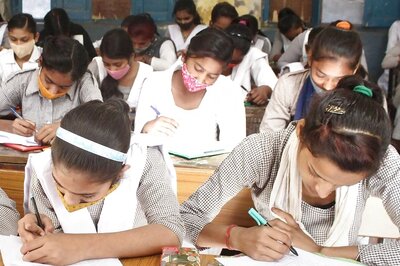
views
While dismissing a writ petition by the president of the Jai Lok Party, the Madhya Pradesh High Court recently observed that the decision of the state government to reject his application for allotment of a government house on account that his outfit was neither a state-level nor national-level recognised political party was correct.
The bench of Justice Vivek Agarwal rejected the contention raised by the petitioner, Brijesh Gupta, president of Jai Lok Party, that his outfit was a duly registered political party and there’s nothing like a national-level or state-level recognised political party.
It was Gupta’s argument that by virtue of being the president of his party, he was entitled to the allotment of government accommodation.
However, the single-judge bench highlighted that the state government had rejected Gupta’s request stating that an unrecognised political party had no locus to seek the allotment of a house.
The bench referred to the definition of ‘political party’ as given under Paragraph 2(1) (h) of the Election Symbols (Reservation and Allotment) Order, 1968, stating, “Political party means an association or body of individual citizens of India registered with the Commission as a political party under paragraph 3.”
The judge also highlighted Section 2 (1) (f) of the Representation of the People Act, 1951, defining a ‘political party’ to mean an association or a body of individual citizens of India registered with the Election Commission of India as a political party within Section 29-A of the Representation of the People Act, 1951.
“Though petitioner has filed a covering memo on 25/10/2023 enclosing a resolution and constitution of Jai Lok Party but has not enclosed a copy of any document to show that petitioner’s party is a recognized political party within the meaning of Section 2(1)(f) of the Representation of the People Act or as per the first proviso to Section 33(1) of the Representation of People Act or in terms of paragraph 3 of the Election Symbols (Reservation and Allotment) Order 1968,” the bench noted.
Therefore, there being no material on record to show that Gupta’s party was either a recognised state party or a national party, the HC held that the decision of the state government was not faulty.
“Thus, the petition being devoid of merit deserves to be dismissed and is hereby dismissed,” conclusively ordered the court.



















Comments
0 comment